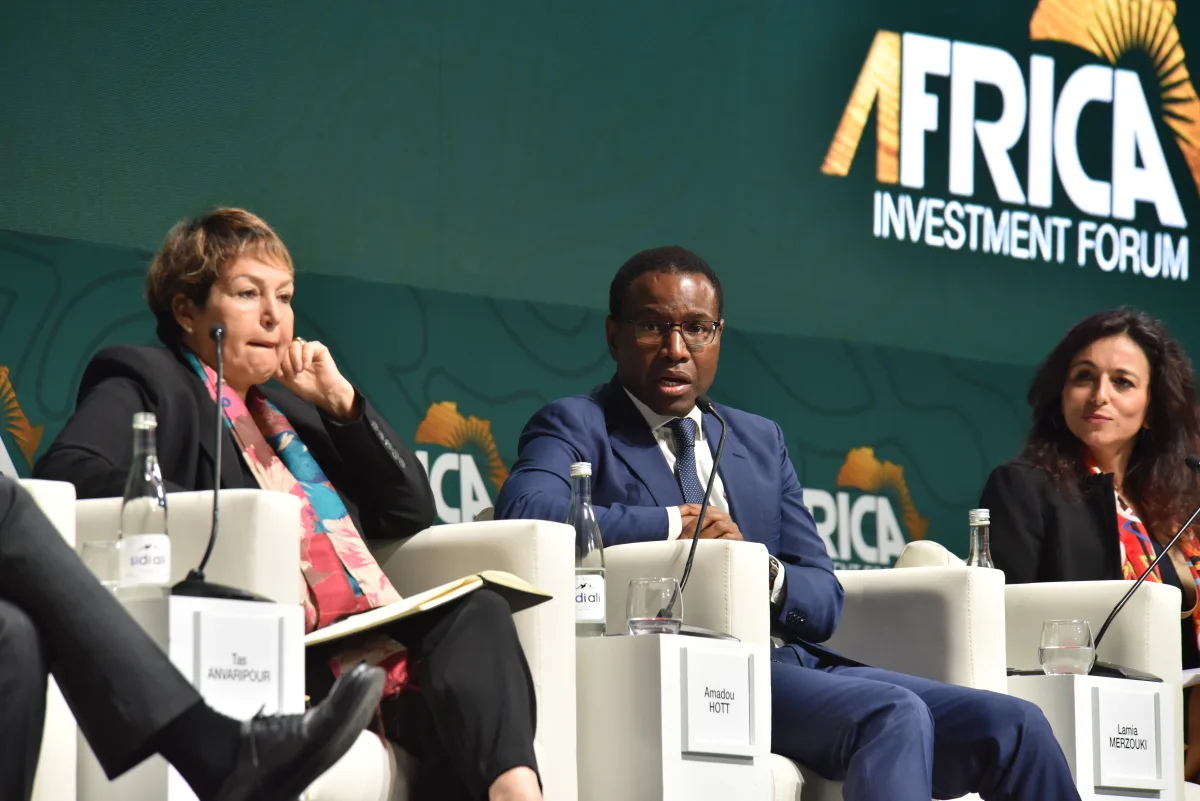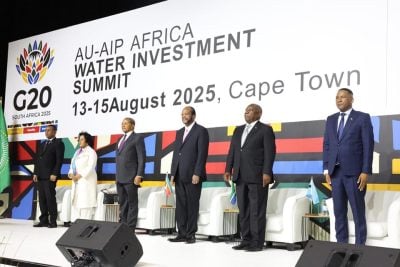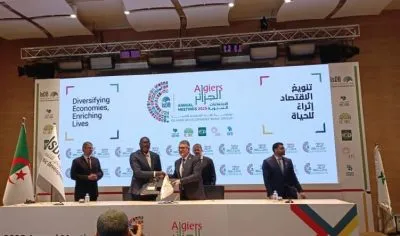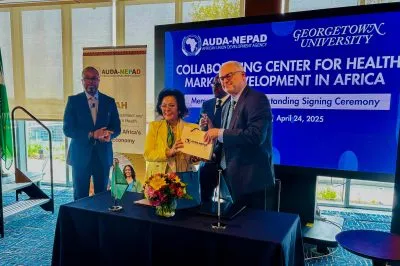At the Africa Investment Forum in Morocco in November, the panel on Climate-Resilient Infrastructure: Securing the Future discussed the need to develop infrastructure that can withstand the effects of climate change and contribute to environmental sustainability and economic growth.
Mohammed Al-Ghanim, CEO of the Hamad S Al-Ghanim Group, highlighted the vast potential for climate-resilient infrastructure in Africa but said these opportunities must be attractive to global investors. He suggested a focus on de-risking projects to strengthen their appeal.
He urged developers and financiers to focus on projects that respond to the genuine needs of Africa. “There needs to be a right fit between what we can provide and what Africa needs.”
Drawing investors to Finance City
Lamia Merzouki, Chair of the UN-led Financial Centers for Sustainability Network and COO of the Casablanca Finance City Authority, noted that the Finance City had been established in 2010 to attract international financial flows and direct them to the continent. It is, she noted, strategically positioned to expedite the development of climate-resilient infrastructure across the continent.
Part of the appeal of Casablanca Finance City, Lamia explained, is the specific framework put in place to attract investors and partners. This includes fast-tracked incorporation and labour laws that make it easy for firms in the city to hire foreign talent. Tenants include Africa50, InfraCo Africa and Themis Energy. “I hope there will be more financial centres in Africa. It’s not just a network of banks, insurance companies or investment firms. It’s really the synergy of the whole ecosystem of players, including the regulators,” she remarked.
The need for climate risk assessments
Tas Anvaripour is the CEO of renewable energy corporation Themis Energy. She said that the imperative to build climate-resilient infrastructure in Africa has led the firm to integrate climate risk assessments into its project preparation and development processes.
She took as an example a 53 MW hydro power project in Kenya. Not only was a feasibility study done, but also a climate risk assessment.
After this process, the project was redesigned to reduce environmental impact.
“We lost 10% of generation capacity, but we are doing the project with optimal environmental impact and creating a climate-resilient asset,” she noted.
She called for an innovative approach to building climate smart infrastructure, including redesigning old assets with a focus on resilience. She noted that Africa has about 28.8 GW of existing hydro assets, 14.7 GW of which are more than 20 years old.
The Alliance for Green Infrastructure in Africa
Amadou Hott is special envoy of the president of the African Development Bank for the Alliance for Green Infrastructure in Africa, He spoke about the vision of the Alliance, which was launched at COP27 in 2022 by the African Development Bank, the African Union, Africa 50 and other partners to build a portfolio of $10bn of green infrastructure assets on the continent.
He said the Alliance had garnered strong interest from a range of stakeholders, including African institutions. “About 20% of the money that we need will come from African institutions, which is a big signal to the international community,” he reported.
The Alliance has already unlocked $100m in grant money to help the private sector to improve project preparation and $400m in blended finance that will be used to co-invest with the private sector.
He stressed the need for increased domestic resource mobilisation, arguing that a robust public funding environment is essential for the private sector to invest confidently and at scale. He highlighted the low tax-to-GDP ratio in many African countries and called for an expanded tax base to boost revenues sustainably.
Maintain existing infrastructure
Boitumelo Mosako, CEO of the Development Bank of Southern Africa, noted that development finance institutions need to focus not only on building new climate-resilient infrastructure, but also on maintaining existing infrastructure and adapting it for climate change.
She said Africa needs to focus on projects that can make a positive impact on local value chains and drive economic growth. Obaid Amrane, CEO of Ithmar Capital, noted that sovereign wealth funds play a crucial role in bridging the gap between private investors and the public sector and that they were key in accelerating the development of climate-resilient infrastructure in Africa.
Want to continue reading? Subscribe today.
You've read all your free articles for this month! Subscribe now to enjoy full access to our content.
Digital Monthly
£8.00 / month
Receive full unlimited access to our articles, opinions, podcasts and more.
Digital Yearly
£70.00 / year
Our best value offer - save £26 and gain access to all of our digital content for an entire year!

 Sign in with Google
Sign in with Google 



